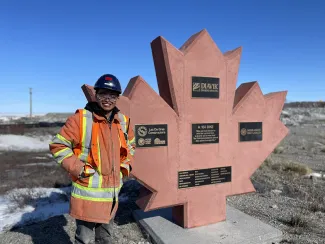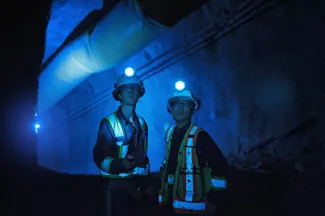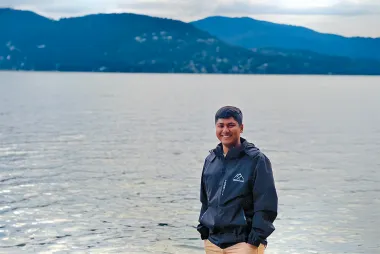"This program has helped me become a lot more well rounded."
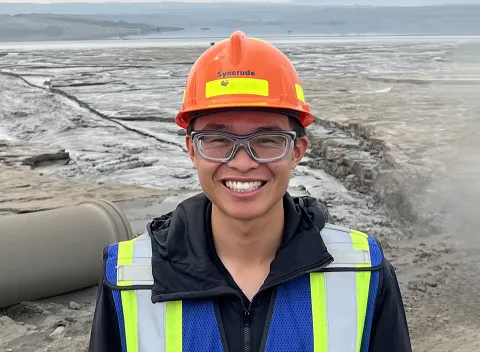
Howard Cheng
- Degree:
- Bachelor of Applied Science
- Program:
- Campus: Vancouver
- Year: Going into 4th year (as of July 2023)
Why did you want to study engineering?
Physics and chemistry were always my favourite courses, and I actually spent a lot of time in high school designing things in CAD and doing 3D printing, staying behind after school to work on my own projects. Engineering seemed like the most obvious choice!
How did you choose your specialization in Mining Engineering?
I’ve always been interested in rocks and geology. I attended high school in Hong Kong and during one overseas trip I visited a mine site in New Zealand. Looking down into the mine, I was struck by how massive it was – seeing the haul trucks in such a big pit was mind blowing. I also realized how much the local town depended on the mine site, which underlines the community impact and importance of mining. Once I was at UBC I saw that the university has really strong connections with the mining industry – and I have to say I was keen on the idea of the annual grad trip as well!
Do you think you’ve developed new skills as a result of studying engineering?
This program has helped me become a lot more well rounded. I’ve learned a lot of communication, teamwork and leadership skills through my classes and co-op work terms – which have also helped me develop new technical skills and learn about mine safety.
Are you involved in any clubs or teams?
I was part of the Canadian Mining Games team for UBC as one of the co-captains. Last year’s competition was in Vancouver and it brought together nine other teams from across Canada. There were 20 to 30 different events and UBC came in third overall, which is a great showing.
I was also the professional development representative for the Mining Council last year and helped organize a trip to Toronto for a conference hosted by the Prospectors and Developers Association of Canada. We were able to network with different people and mining companies, including international ones. I’m on the council this upcoming year as the grad representative and one of our goals is to plan an international grad trip – we’ll be visiting Japan and Mongolia.
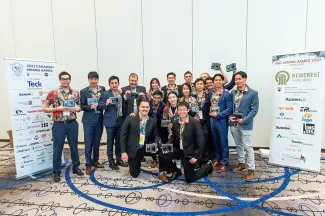
Any advice for other students?
In first year, go to as many departmental events as possible to learn more about the different disciplines and figure out which one you really want to pursue.
Getting involved and forming connections is important, as is finding a healthy balance between school and extracurriculars. As for choosing a specialization, I think Mining Engineering is a great choice if you want to make a difference. As we move to electrify and decarbonize our world, we will require so much more copper and other metals to support that shift to sustainability. There are a lot of opportunities for mining engineers!
